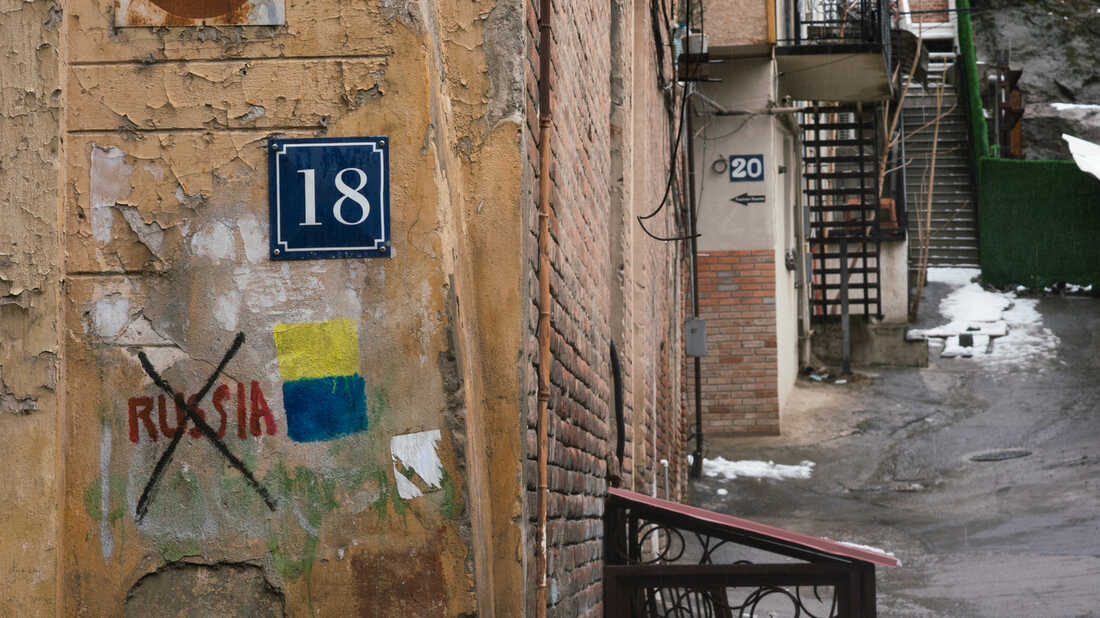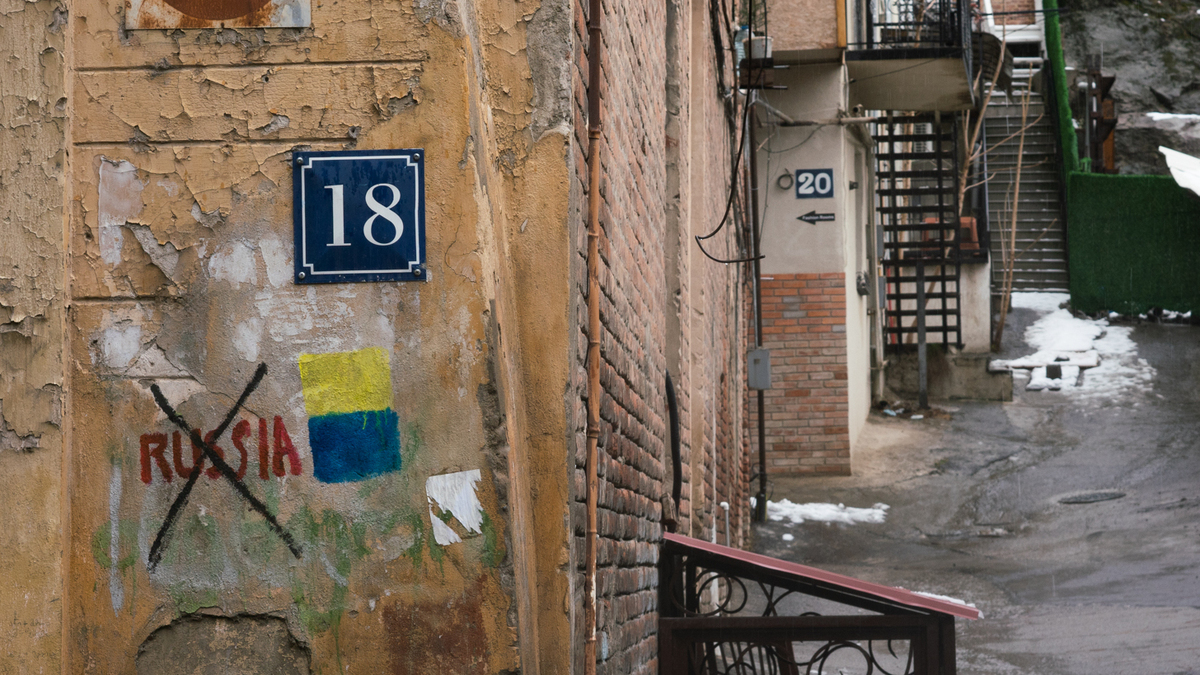
Graffiti on a street corner in downtown Tbilisi, Georgia, shows Russia crossed out and the flag of Ukraine next to it. Claire Harbage/NPR hide caption

Graffiti on a street corner in downtown Tbilisi, Georgia, shows Russia crossed out and the flag of Ukraine next to it.
Claire Harbage/NPRIn 2008, Russia invaded another former Soviet republic: Georgia, a small country on the southeast edge of Europe. Today, Georgia is seeing an influx of Russians who are fleeing their home country in opposition to its invasion of Ukraine. Mary Louise Kelly traveled to Georgia to hear how people who live with Russian troops on their doorsteps are feeling as they watch the war in Ukraine play out.
Email us at
This episode was produced by Mia Venkat, Karen Zamora, and Kat Lonsdorf. It was edited by Ashley Brown And Courtney Dorning. Our executive producer is Cara Tallo.

 Live Radio
Live Radio